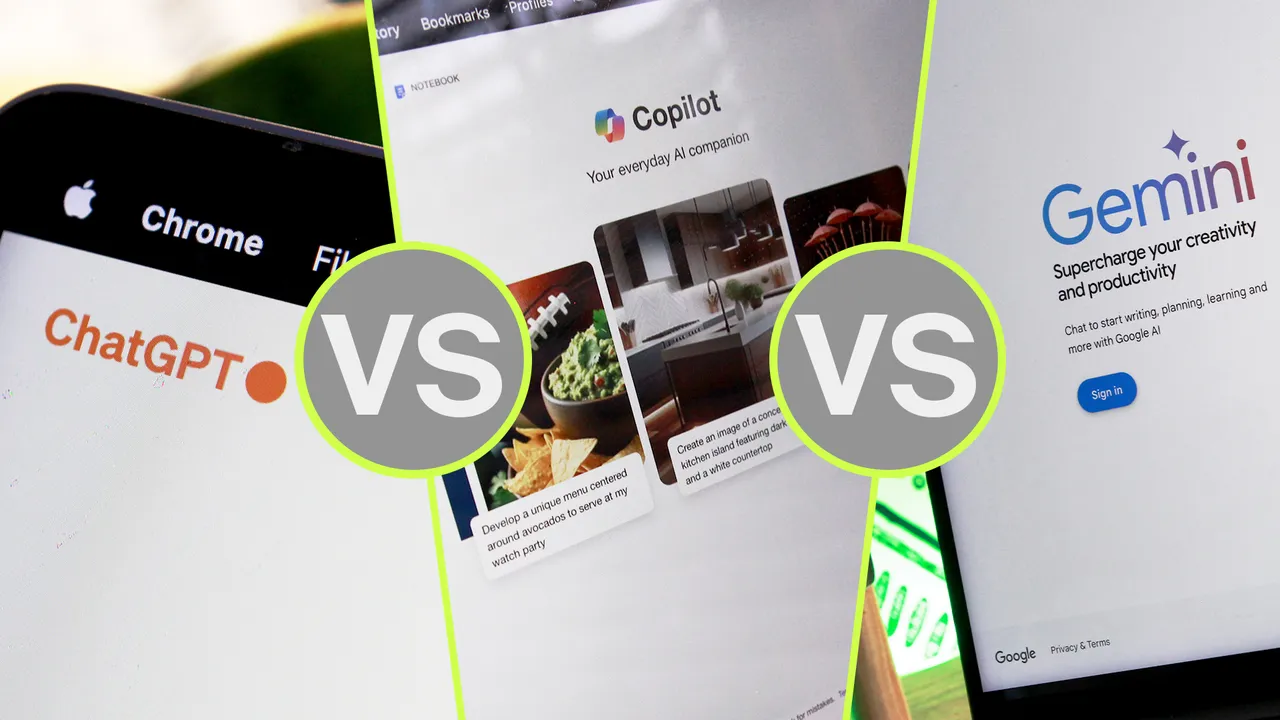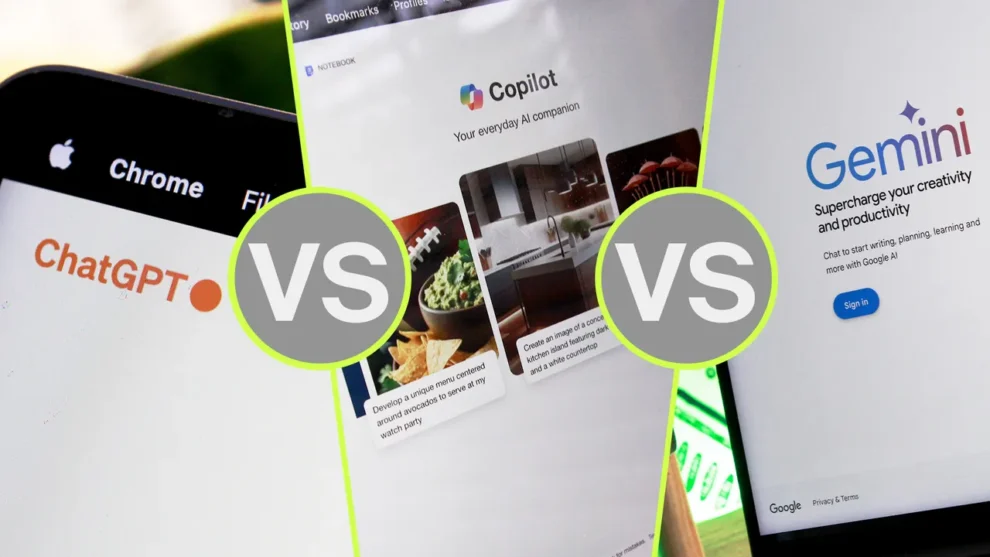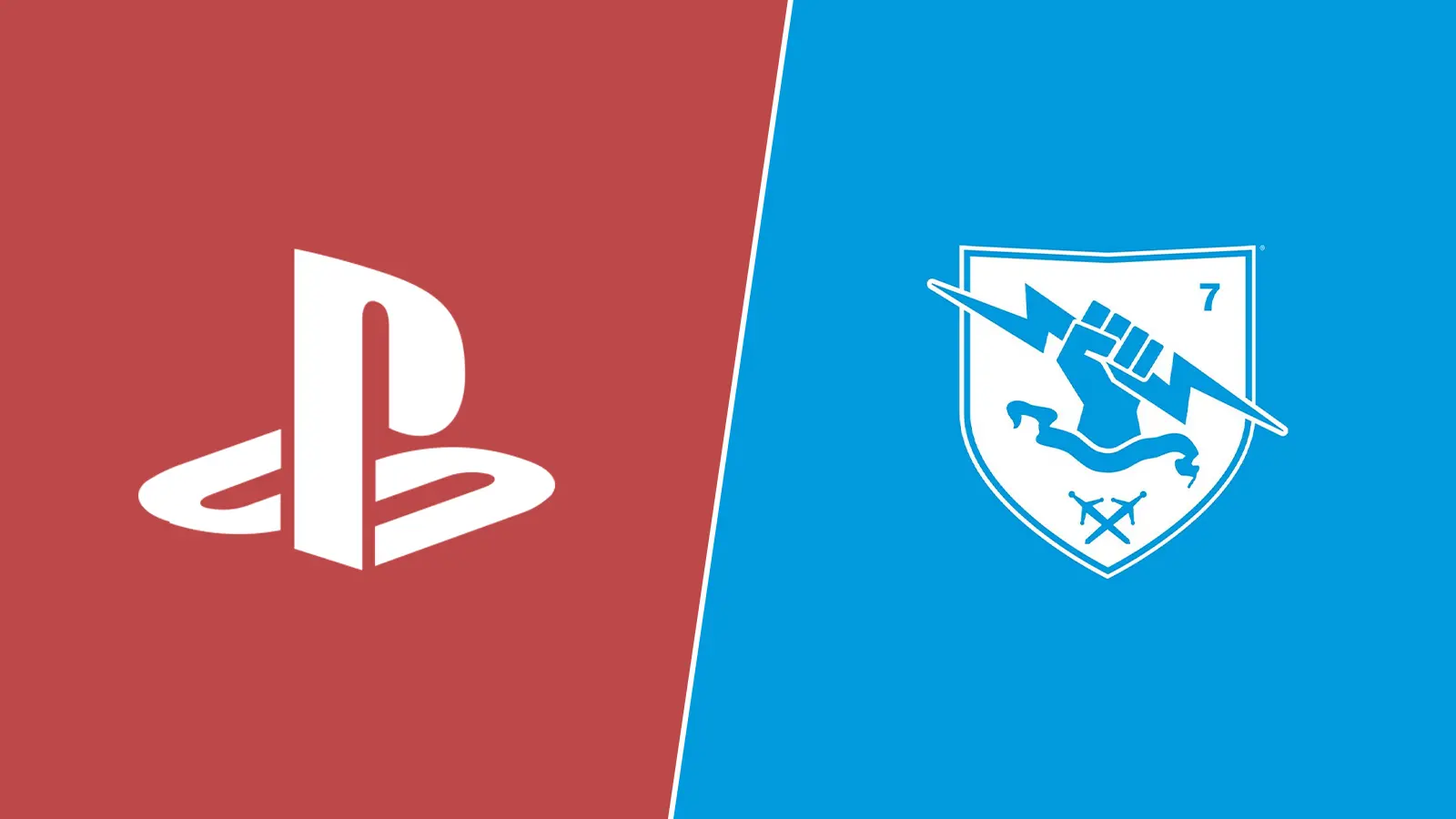In the rapidly evolving landscape of artificial intelligence, three prominent AI chatbots have been capturing the attention of tech enthusiasts and enterprises alike: ChatGPT, Microsoft Copilot, and Google’s Gemini. Each of these platforms brings unique strengths and weaknesses to the table, prompting users to carefully consider which might best meet their needs.
Key Highlights:
- ChatGPT offers robust language processing capabilities and diverse API access, including the popular GPT-4 model.
- Microsoft Copilot integrates deeply with the Microsoft 365 ecosystem, offering personalized responses and productivity enhancements.
- Gemini, Google’s entry into the AI chatbot race, is notable for its multimodal capabilities and varying sizes for different applications.

Pros and Cons at a Glance:
ChatGPT:
- Pros: Strong performance across benchmarks, extensive resources and guides, API access to several models, and a free option for experimentation.
- Cons: Recent leadership issues may affect its perception, and like others, it lacks transparency in source data.
Microsoft Copilot:
- Pros: Deep integration with Microsoft 365, personalized responses using Microsoft Graph, and applications across Microsoft’s suite.
- Cons: Higher cost for enterprise use and reliance on the Microsoft ecosystem may limit its appeal to users outside of it.
Gemini:
- Pros: Designed to be multimodal, offering different sizes for various applications, and includes free options for experimentation.
- Cons: Limited initial availability of its most capable version (Pro) and lower familiarity among the public and developers.
In-Depth Analysis:
ChatGPT’s Flexibility and Accessibility: ChatGPT, developed by OpenAI, leverages transformer neural networks for text processing and generation. It is available in different forms, from a free application for testing and research to premium subscription plans that unlock advanced GPT architecture and features like faster response times and additional content creation tools. ChatGPT’s API also enables developers to integrate its capabilities into other applications.
Microsoft Copilot: A Productivity Powerhouse: Microsoft Copilot, built on OpenAI’s technology and Microsoft’s resources, excels in contextualizing and personalizing responses. It is particularly effective within the Microsoft 365 ecosystem, enhancing productivity in Word, Excel, PowerPoint, Outlook, Teams, and more. Its integration enables a seamless AI-driven assistant experience for users deeply embedded in Microsoft’s suite of applications.
Gemini: Google’s Multimodal Challenger: Gemini stands out for its design as a multimodal system, available in different sizes to suit various applications. While it’s Google’s most advanced system to date, its initial rollout has been limited, with only the Pro version widely available for developers. Despite this, Gemini represents Google’s ambition to compete in the AI space, offering a blend of free and advanced options for users and developers.
Real-World Applications: When tasked with planning a vacation, each AI chatbot showcased its unique approach and capabilities. Microsoft Copilot provided detailed itineraries with budget-friendly accommodations and activities, demonstrating its utility in practical planning scenarios. ChatGPT, while offering suggestions, showcased its ability to generate creative and varied responses.
Summary: Choosing between ChatGPT, Microsoft Copilot, and Gemini hinges on specific needs and contexts. ChatGPT offers a wide range of applications and a strong performance record, making it a versatile choice for many users. Microsoft Copilot excels in productivity enhancements within the Microsoft ecosystem, ideal for enterprises and professionals already utilizing these tools. Gemini, with its multimodal capabilities and experimental flexibility, represents an emerging competitor that may appeal to developers and users looking for cutting-edge AI technology. As these platforms evolve, the best choice will likely depend on the balance between performance, features, ecosystem integration, and cost.


















